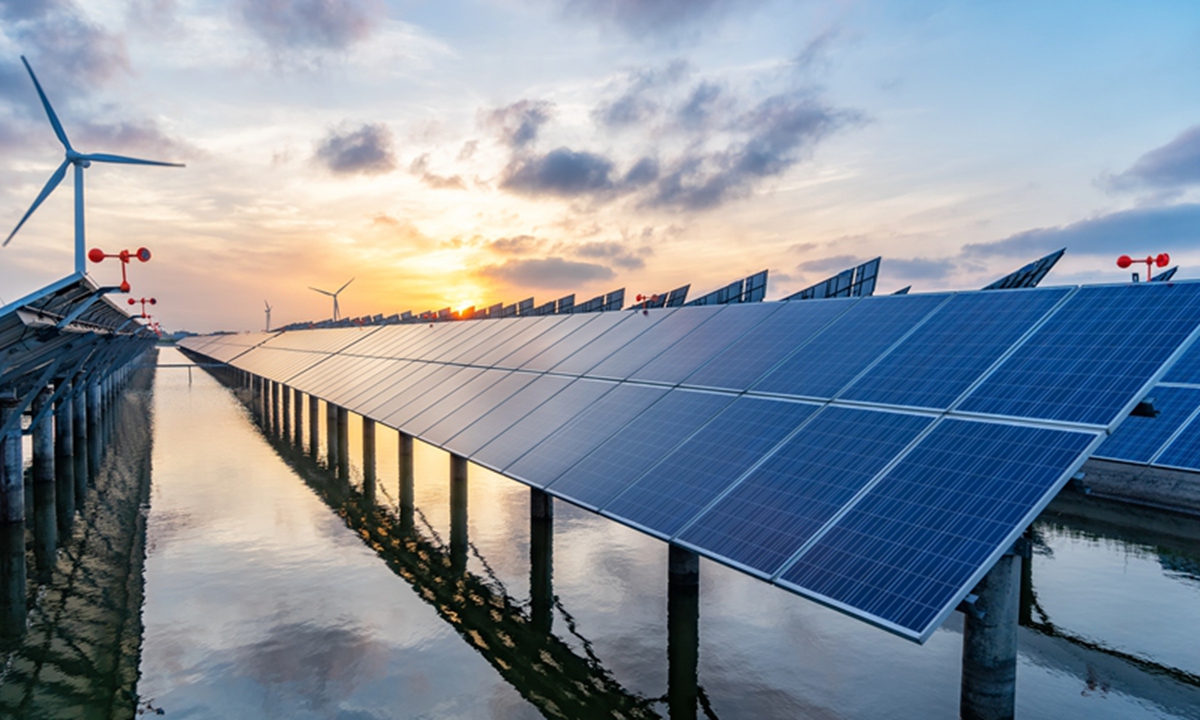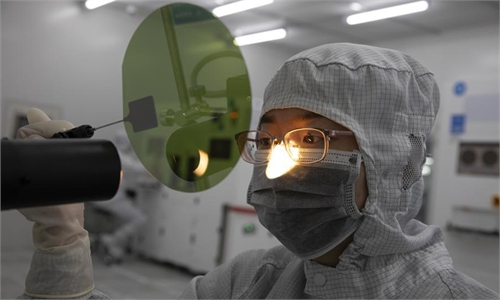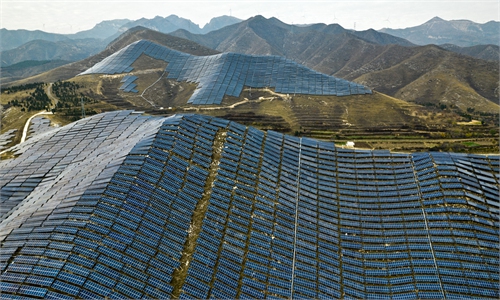US solar industry bankruptcies reflect declining competitiveness, worsened by protectionism: experts

Photovoltaic panels in Sihong, East China's Jiangsu Province Photo: VCG
Recent US solar sector bankruptcies have revealed a significant decline in its industrial competitiveness due to trade barriers, Chinese experts said on Sunday, noting that Chinese solar firms, with reduced dependence on the US market and driven by continuous technological innovation and supply chain advantages, will remain unaffected and continue to expand globally.
US investment bank Roth Capital Partners reported that over 100 US residential solar companies collapsed in 2023, six times the total of the previous three years. The firm predicts that more than 100 additional US solar companies are at risk of collapse.
Shares of SunPower, one of the largest solar equipment firms in the US, plunged 42 percent on Friday after Guggenheim Securities cut its price target to zero and warned of a potential delisting, following a 20 percent stock plummet on Thursday when the company announced it would pause some operations, according to media reports.
The bankruptcy wave among US solar companies is primarily attributed to their lack of competitiveness in the global supply chain, exacerbated by protectionist measures against advanced Chinese photovoltaic (PV) products, Lin Boqiang, director of the China Center for Energy Economics Research at Xiamen University, told the Global Times on Sunday.
"These measures have led to rising production and consumption costs for US businesses and consumers, as well as severely disrupting the global supply chain and global market," Lin said.
The US has employed WTO anti-dumping and anti-subsidy rules, along with domestic trade laws such as Sections 201 and 301, to restrict imports of Chinese PV products, resulting in minimal direct solar product exports from China to the US market.
In 2023, China's exports of PV cells to the US totaled $3.35 million, representing only 0.1 percent of its total exports, while PV modules totaled $13.15 million, making up a mere 0.03 percent of the overall export volume.
Recent years have seen a surge in global demand for PV products, and Chinese solar companies are reducing their dependence on the US market, with emerging markets such as the Middle East and Africa showing strong growth potential.
In recent months, major Chinese companies have unveiled plans to set up factories in the Middle East. On Tuesday, three leading Chinese solar firms, including JinkoSolar Co, TCL Zhonghuan Renewable Energy Technology Co and Sungrow, reached PV manufacturing agreements with Saudi Arabia, according to media reports.
US' protectionist measures, aimed at boosting the domestic industry by sanctioning Chinese PV companies, are proving ineffective and may backfire, Li Yong, a senior research fellow at the China Association of International Trade, told the Global Times on Sunday.
On May 14, the US announced tariff hikes on imports from China, including electric vehicles, lithium batteries and PV cells, adding to the existing Section 301 tariffs, according to media reports.
On June 7, the US issued a preliminary ruling in its investigation into solar products from four Southeast Asian countries, aiming to limit the entry of Chinese solar products into the US market.
"Global demand for renewable energy is surging amid the global green transition, providing Chinese solar manufacturers with significant opportunities to explore emerging markets. This expansion is expected to boost their global market share and competitiveness while also contributing positively to the global energy transition," Li said.
Experts noted that China's ramped-up efforts to increase its innovation capacity and competitive advantages will drive ongoing advancements in solar technology and cost reductions, which will enable it to explore broader markets.
Moreover, Chinese solar companies must adapt flexibly to the complex international trade environment, innovate their cooperation models, and develop diverse international partnerships to ensure long-term healthy development, they noted.
Global Times



